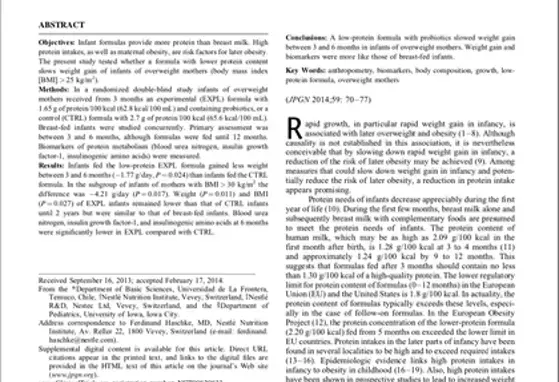Expert's opinion
In this section of the website, internationally renowned experts share with us their scientific opinion on specific topics related to Nutrition. If you are interested in improving your knowledge and learning about the latest research on obesity, allergies and other compelling topics, this page is for you!
Sponsorship Disclosure: Many of the publications, programs, conferences, educational resources and other content available on this website have been funded and/or prepared by the Nestle Nutrition Institute or its Nestle affiliates.


The Importance of Normal Colonization of the Newborn in Immune Development and Prevention of Disease
The Importance of Normal Colonization of the Newborn in Immune Development and Prevention of Disease








